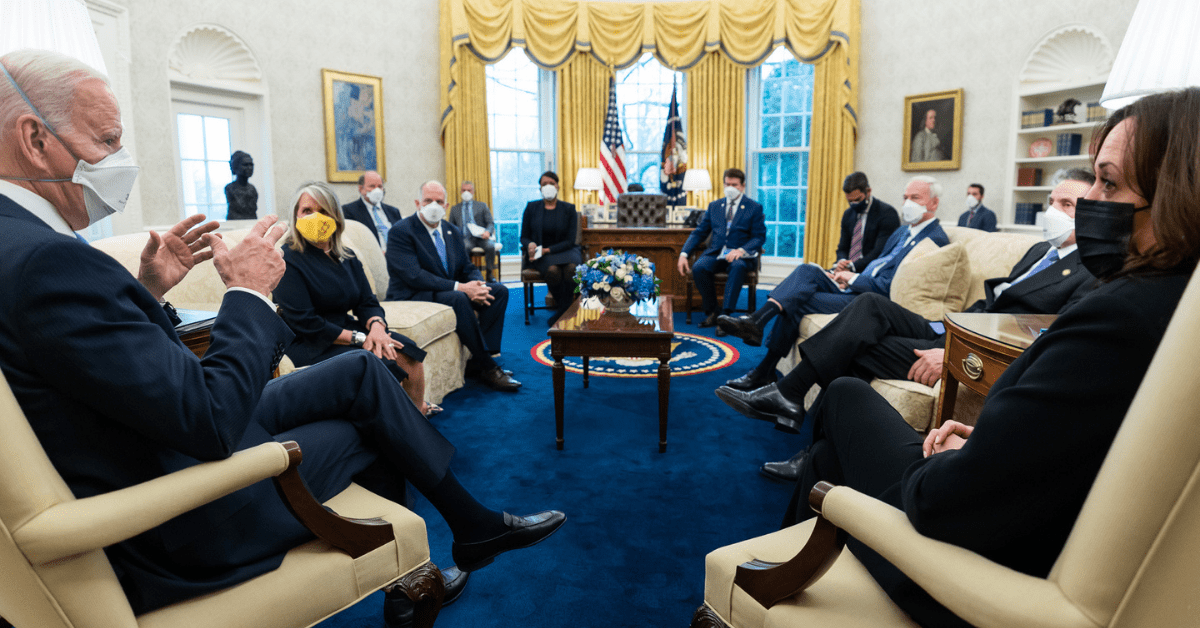
Biden’s Environmental Reform: What Can We Expect?
By Jessica Wen
Newly elected President Joe Biden took office a little over a month ago, and already, there have been many changes proposed in hopes of countering the policies of the Trump administration, especially with regards to improving our environment in the U.S. and internationally. Biden’s environmental reform is likely to shift national goals and reestablish the U.S as a concerned member of the global community to counteract climate change.
TOP PRIORITIES
Prior to him being elected, then Democratic nominee stated if he were elected President of the U.S., he would implement several processes and put agencies in place to combat the human contribution to climate change. On the campaign trail, he also promised to target and limit threats to public health, search for clean energy, and protect the natural world. He specifically campaigned on the establishment of an environmental and climate justice division within the U.S. as well as a push to the Department of Justice (DOJ) to pursue criminal anti-pollution cases and bring justice to communities that experience the worst impacts of climate change (which we see are usually Black, Indigenous, and other People of Color communities). Additionally, he stated that he wants the states to hold their own agencies accountable, ensuring that each state can adequately monitor environmental pollution. Over the next four years, we shall see if he carries out his promises…and hope he does.
On the first day of his holding office, we saw movement in the right direction. President Biden signed an Executive Order to recommit the U.S. to the Paris climate agreement, revoked the permit allowing the Keystone XL pipeline to cross the border from Canada into the U.S., and placed a temporary moratorium on oil and gas harvesting in the Arctic National Wildlife Refuge (ANWR).
Amid President Biden’s environmental policies, there exists a consideration of the pipelines that run through and across state borders. His revocation of the Keystone XL pipeline permit creates an expectation and a precedence for his decisions on the other pipelines that are causing damage to the environment and the communities around them. While it was easy for President Biden to revoke the Keystone XL permit due to it crossing from one country into another, we hope to see similar action against proposed pipelines here in the lower 48. Along with running through precious habitats and causing barriers for wildlife to migrate during construction, pipelines also present a huge safety danger for water contamination and erosion as we’ve seen through our water quality monitoring program and Construction Surveillance Initiative (CSI).
Recently, there has been commotion around the Dakota Access pipeline project. After a federal appeals court in Washington D.C. ruled that the government should have conducted an Environmental Impact Statement (EIS) before obtaining the approval for construction, many progressive lawmakers, celebrities (including Robert Downey Jr., Kerry Washington, Leonardo DiCaprio, Ryan Reynolds, etc.), and indigenous leaders (including Jodi Archambault, a former Obama adviser and a member of the Standing Rock Sioux Tribe, and Tom Goldbooth, the Executive Director of the Indigenous Environmental Network) have been pressuring the president to halt the project altogether, signing a letter that was sent to him on February 8. On February 5, Sens. Jeff Merkley (D-Ore.) and Elizabeth Warren (D-Mass.) and Reps. Nanette Diaz Barragán (D-Calif.), Raúl Grijalva (D-Ariz.) and Raul Ruiz (D-Calif.) sent a letter to President Biden as well, urging him to meet with members of impacted indigenous tribes. President Biden can act on the pipeline; however, he has yet to make his decision.
PIPELINE ISSUES
Closer to home, the conversation about the Mountain Valley pipeline has gained some traction. This pipeline runs from West Virginia’s gas fields through Southern Virginia. The natural gas pipeline has hit several legal roadblocks in the past regarding its permits, including lawsuits that Wild Virginia and other environmental groups have been a part of. With President Biden’s inauguration, there has been much debate on how he will proceed with determining the pipeline’s fate, and Wild Virginia members and no pipeline activists are holding onto hope
Though his focus seems to be on climate change and finding clean energy, President Biden has also discussed the importance of protecting biodiversity and slowing extinction rates. Recently, he announced his 30×30 initiative to conserve and restore 30 percent of the U.S.’s lands and waters by 2030, assuring U.S. citizens he will promote reforestation and create new national parks.
Additionally, President Biden proposed to enact Civilian Climate Corps, a citizen group of conservationists to help monitor our natural landscapes, including improving wildlife corridors, one of Wild Virginia’s primary campaigns. The most notable step towards improving these wildlife corridors that he announced is his plan to halt the border wall construction, a Trump Administration project that would have prevented many species migration patterns to find food, mate, etc. By rescinding the waivers of federal and local laws that allowed construction to continue, Biden hopes to start removing some of the barriers that severed vital wildlife corridors that many animals rely on to survive. Additionally, the wall has complicated migratory passages, affecting many endangered species. Though the administration has already decided to end the construction of the wall, there is still much debate on whether the constructed pieces should be torn down.
With the Biden administration, there has been a great shift in the executive environmental policy that will hopefully trickle down to our state legislatures. As the new president continues to hold office, we will see whether he will stay true to his campaign promises and continue searching for and acting on new issues as they arise.